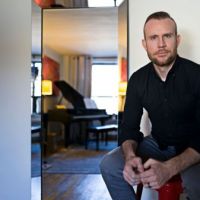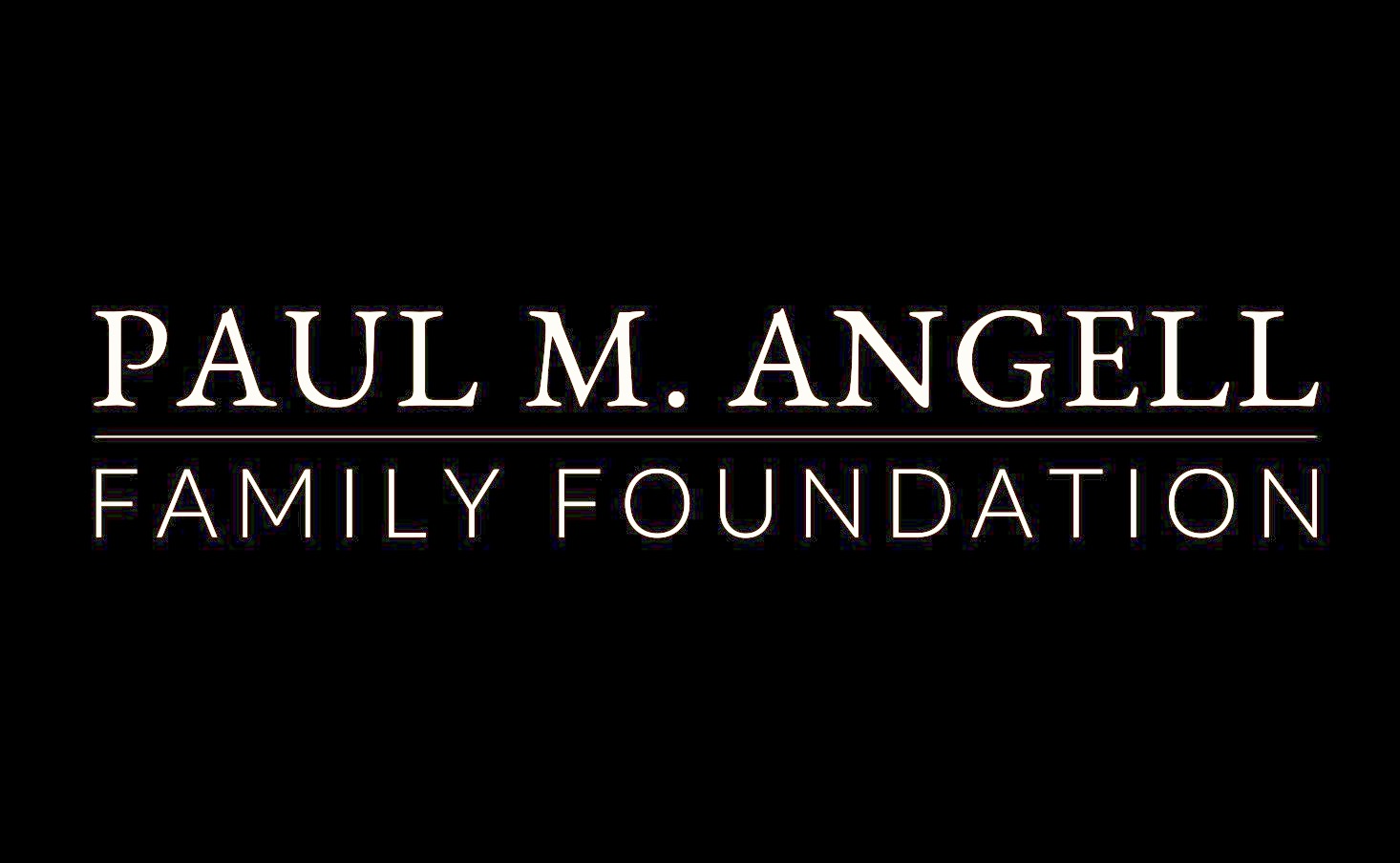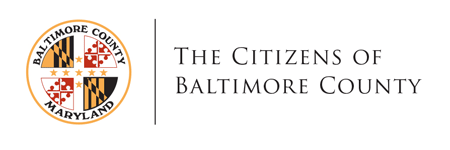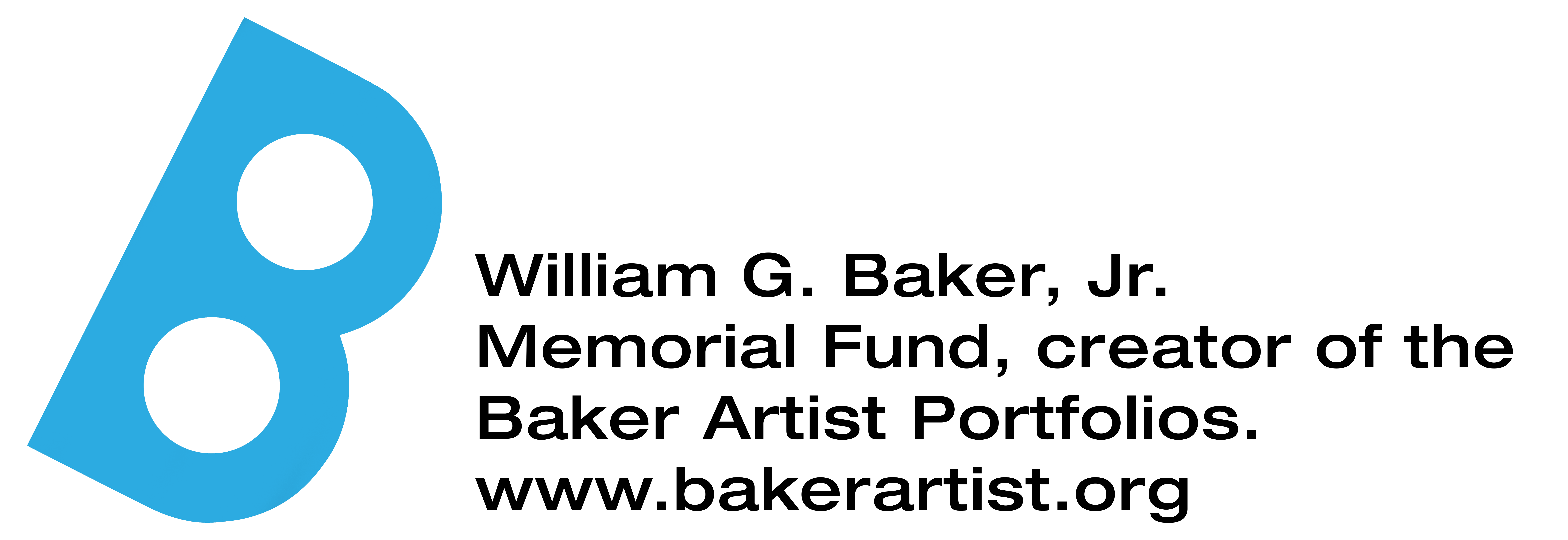Davóne Tines, bass-baritone
Adam Nielsen, piano
The Yale Gordon Young Artist Concert
Location: Shriver Hall
Davóne Tines, a “singer of immense power and fervor” (Los Angeles Times), is celebrated internationally as a “path-breaking artist at the intersection of many histories, cultures, and aesthetics” (Time Magazine). In this highly original recital, Musical America’s Vocalist of the Year for 2022 grounds his program in the Mass, interweaving Bach with contemporary settings that draw on the traditions of art song, spirituals, and gospel.
“Davóne Tines is changing what it means to be a classical singer.” —The New Yorker
About the sponsor
This concert is approximately 65 minutes with no intermission.
Yale Gordon first sponsored a concert by an accomplished young artist in 1978. The following year, his Yale Gordon Foundation made its initial contribution to Shriver Hall Concert Series. The Foundation eventually evolved into The Peggy and Yale Gordon Trust, which has been sponsoring annual Series concerts since 1986. The Yale Gordon Young Artist Concert features soloists or ensembles with great promise in the formative stages of their careers. Many of the artists who debuted at Shriver Hall through this concert have developed or already have international careers. The Board of Directors of the Series is deeply grateful to the Trust and its officials, Phyllis and Louis Friedman, and the late Sidney Sherr and Loraine Bernstein, for their warmly welcomed support and encouragement in making the Yale Gordon programs so successful over the years.

Davóne Tines
Heralded as “[one] of the most powerful voices of our time” by the Los Angeles Times, the “immensely gifted American bass-baritone Davóne Tines has won acclaim, and advanced the field of classical music” (The New York Times) as a path-breaking artist whose work not only encompasses a diverse repertoire but also explores the social issues of today. As a Black, gay, classically trained performer at the intersection of many histories, cultures, and aesthetics, he is engaged in work that blends opera, art song, contemporary classical music, spirituals, gospel, and songs of protest, as a means to tell a deeply personal story of perseverance that connects to all of humanity.
Mr. Tines was recently named Musical America’s 2022 Vocalist of the Year. He is artist-in-residence at Michigan Opera Theatre—an appointment that culminates in his performance in the title role of Anthony Davis’ X: The Life and Times of Malcolm X in the spring of 2022—and Philharmonia Baroque Orchestra & Chorale’s first-ever Creative Partner. His ongoing projects include Recital No. 1: MASS, a program exploring the Mass woven through Western European, African-American, and 21st-century traditions, with performances this season at the Ravinia Festival, in Washington, DC, and at the Barbican in London. He also performs Concerto No. 1: SERMON—a program he conceived for voice and orchestra that weaves arias by John Adams, Anthony Davis, Igee Dieudonné and Mr. Tines himself, with texts by James Baldwin, Langston Hughes, and Maya Angelou—with the Philadelphia Orchestra and BBC Symphony.
Mr. Tines is a member of American Modern Opera Company (AMOC) and co-creator of The Black Clown, a music theater experience commissioned and premiered by The American Repertory Theater and presented at Lincoln Center. He has premiered works by today’s leading composers, including John Adams, Terence Blanchard, and Matthew Aucoin, and his concert appearances include performances of works ranging from Beethoven’s Ninth with the San Francisco Symphony to Kaija Saariaho’s True Fire with the Orchestre national de France.
Davóne Tines is a winner of the 2020 Sphinx Medal of Excellence, recognizing extraordinary classical musicians of color, and the recipient of the 2018 Emerging Artists Award from Lincoln Center. He is a graduate of The Juilliard School and Harvard University, where he also serves as guest lecturer. His website is alsoanoperasinger.org.
“Tines is as mesmerizing as a singer can be.” —Los Angeles Times

Adam Nielsen
Pianist Adam Nielsen, born in Arco, ID, has served as pianist, coach, chorus master, and assistant conductor for The Juilliard School’s Marcus Institute of Vocal Arts since 2011. He coaches song and operatic repertoire and is an advisor to the undergraduate singers. As an opera pianist, he has worked for Harvard’s American Repertory Theater, Aspen Opera Theater, Virginia Opera, Brooklyn Academy of Music, The Metropolitan Opera, Richard Tucker Foundation, Opera Theatre of St. Louis, Dallas Opera, and Chicago Lyric and has collaborated with such conductors as Nicola Luisotti, Anthony Walker, Stephen Lord, Gary Wedow, Speranza Scappucci, Emmanuel Villaume, Carolyn Kuan, and Matthew Aucoin.
As a soloist and chamber musician, he has appeared in concert with the St. Louis Symphony, Utah Symphony, Stony Brook Symphony, Fry Street Quartet, A Far Cry, Windscape, and in recital with Andrés Cárdenes, Tamara Mumford, Ryan Speedo Green, Steven LaBrie, Simone Osborne, Davóne Tines, Claire DeSevigne, and Ying Fang. Recital appearances include Carnegie Hall, The Frick Collection, Alice Tully Hall, Ravinia Festival, Abravanel Hall, Aspen Festival, Chicago’s Myra Hess Series, and the Vilar Center in Beaver Creek, CO. He has also been a staff pianist with the Steans Institute of the Ravinia Festival and the Heifetz International String Institute. Mr. Nielsen earned degrees in Piano Performance from Utah State University (BM), The Juilliard School (MM), and Stony Brook University (DMA).
Recital #1: Mass
Program Note by Davóne Tines
View NotesSynopsis:
An exploration of the Mass woven through Western European, African American and 21st Century traditions.
Inspiration: Why a liturgical setting to the recital?
I approached the recital situation with a sort of a phobia, or an allergic reaction to participating in a programming model in which I wasn’t fully engaged. Filling in a template with music that checks boxes and doesn’t articulate my own feelings and experience in an explicit way. I think this idea of explicit context is critical: in order to perform well, these things need to be in the front of your mind, for every single note.”
As a child, singing was all religious or liturgical and all in a choral setting with close family and friends. Everyone in my family participated in choir. Singing works like Beethoven’s Ode To Joy followed by Lauryn Hill’s arrangement of "Joyful, Joyful, We Adore Thee" is a reflection of my actual lived experience with liturgical music. It’s comprised of all of these things: early music, Bach, contemporary gospel, and also new music. When you put these seemingly different things together and acknowledge the connections between them, you have to acknowledge that there’s something shared among these composers. There’s something that is shared among all people. This recital is an opportunity for me to marry all of those flavors together and have that conversation in front of people.
In setting three familiar spirituals, Tyshawn Sorey’s task was to break the songs out of the aesthetic that we understand them within, so that the text and the ideas behind the text could become more apparent. I had this realization that many spirituals are essentially code for suicide notes. “Swing Low, Sweet Chariot,” for example, is someone begging God to kill them, to “carry me home.” The poet Langston Hughes, in his time, directly connected to the possibility of these spirituals being suicidal, and I really want to show audiences another side of these songs. I think a lot of times spirituals are misunderstood, heard as happy songs or praising the Lord. But these are songs created by people in extraordinary circumstances, and they’re amazing, metaphorical expressions of real faith.
The order of the mass I’m using here, and which Caroline Shaw has followed in her miniature mass, accords with my own understanding of a spiritual journey. I’m basically queering the mass. Queering in the broad sense of bending it to my own understanding. Beginning with the Kyrie, which begs for mercy, and then the Agnus Dei, which represents the possibility for change, but only through death. There’s the affirmation of the Credo and the exaltation of the Gloria, with Bach’s “Quia Fecit,” which is so full of ecstatic wonder and excitement. The Sanctus is a moment of meditation and then the Benedictus has this very simple text, “Where there is darkness, he will bring light.” That’s the entire recital right there: Present the darkness and show the change into light.
(Adapted from an interview with journalist Fergus McIntosh.)
Caroline Shaw (b. 1982)
Kyrie
View NotesCaroline Shaw rocketed to fame in 2013 when she won a Pulitzer Prize for her Partita for Eight Voices, which the jury described as “a highly polished and inventive a cappella work uniquely embracing speech, whispers, sighs, murmurs, wordless melodies, and novel vocal effects.” The multitalented American composer, singer, and violinist has made something of a specialty of boundary crossing and genre bending. Equally at home in classical and pop music, Shaw has written works for the Baltimore and Cincinnati symphonies, collaborated with rapper Kanye West and Spanish singer-songwriter Rosalía, and performed with groups ranging from the vocal octet Roomful of Teeth to the early music ensemble Tenet. Shaw’s vocal music draws on an equally eclectic assortment of texts, from Claudia Rankine and Billy Joel to the Requiem Mass. The 2022-23 season marks her first foray into opera with Four Portraits, one of three short operas on contemporary themes commissioned by the Chicago Lyric Opera under the rubric Proximity.
Johann Sebastian Bach (1685-1750)
Wie jammern mich doch die verkehrten Herzen, BWV 170
View NotesIn addition to the more than 200 church cantatas he wrote in his capacity as Leipzig’s municipal music director and cantor of the St. Thomas School, J.S. Bach composed or arranged dozens of oratorios, motets, chorales, and sacred songs. All were intended, as stipulated in his employment contract, to “incite the listeners to devotion.” He produced his first Leipzig cantata for the first Sunday after Trinity on May 30, 1723, barely two weeks after reporting for work. By the end of his first year in Leipzig, he had compiled a full liturgical cycle of some 60 cantatas, and by 1729 he had enough such works in the hopper to relax his frenetic pace and turn his attention to other kinds of music. The two solo arias on tonight’s program date from 1727: “Wie jammern mich doch die verkehrten Herzen” is from Cantata No. 170, Vergnügte Ruh, beliebte Seelenlust (Rest contented, beloved soul), “Mache dich, mein Herze, rein” from the St. Matthew Passion.
Caroline Shaw (b. 1982)
Agnus Dei
View NotesCaroline Shaw rocketed to fame in 2013 when she won a Pulitzer Prize for her Partita for Eight Voices, which the jury described as “a highly polished and inventive a cappella work uniquely embracing speech, whispers, sighs, murmurs, wordless melodies, and novel vocal effects.” The multitalented American composer, singer, and violinist has made something of a specialty of boundary crossing and genre bending. Equally at home in classical and pop music, Shaw has written works for the Baltimore and Cincinnati symphonies, collaborated with rapper Kanye West and Spanish singer-songwriter Rosalía, and performed with groups ranging from the vocal octet Roomful of Teeth to the early music ensemble Tenet. Shaw’s vocal music draws on an equally eclectic assortment of texts, from Claudia Rankine and Billy Joel to the Requiem Mass. The 2022-23 season marks her first foray into opera with Four Portraits, one of three short operas on contemporary themes commissioned by the Chicago Lyric Opera under the rubric Proximity.
Tyshawn Sorey (b. 1980)
Songs for Death: after Were You There
View NotesThe versatile composer and multi-instrumentalist Tyshawn Sorey began his career as a jazz drummer and trombonist, performing and recording with the likes of Vijay Iyer, Anthony Braxton, and John Zorn. At age 39, his interest in experimental music in the classical tradition prompted him to take up graduate studies in composition, first at Wesleyan and then at Columbia. “My very being is dissonance,” he told an interviewer by way of explaining his attraction to European modernism. That dissonance manifests not only in Sorey’s musical language but also in his identity as an African-American artist in the era of Black Lives Matter. Much of his recent vocal music focuses on issues relating to race in America, including the song cycle Cycles of My Being (presented by Shriver Hall Concert Series in February 2019) and the monodrama Perle Noire: Meditations for Joséphine, a tribute to Jazz Age superstar Josephine Baker. Sorey’s commitment to improvisation is reflected in his fluid approach to composition. “There’s no definitive version of a piece,” he says. “I try to let it live its own life, whether that be through expansion or contraction. In the end, I want the piece to grow, just like I’m trying to grow.”
Margaret Bonds (1913-1972)
To a Brown Girl Dead
View NotesOne of the few African-American women composers to have achieved national recognition, Margaret Bonds grew up on the segregated South Side of Chicago and attended nearby Northwestern University. A pupil of Florence Price, another pathbreaking Black composer, she cultivated a long and fruitful partnership with the poet Langston Hughes. Like Price, Bonds suffered from the dual impact of sexism and racism, and much of her music was only “discovered” after her death. In 1933, the same year the Chicago Symphony premiered Price’s First Symphony, Bonds became the first Black soloist of either sex to appear with the orchestra, playing a piano concerto by John Alden Carpenter. In that same year she wrote the song “To a Brown Girl Dead,” to a poem by Countee Cullen. Bonds continued to compose, perform, and teach after moving to New York City in 1939, at the tail end of the Harlem Renaissance, where she became increasingly involved in the civil rights movement. She died in California in 1972, shortly after the Los Angeles Philharmonic premiered her Credo for chorus and orchestra.
Tyshawn Sorey (b. 1980)
Songs for Death: after Swing Low
View NotesThe versatile composer and multi-instrumentalist Tyshawn Sorey began his career as a jazz drummer and trombonist, performing and recording with the likes of Vijay Iyer, Anthony Braxton, and John Zorn. At age 39, his interest in experimental music in the classical tradition prompted him to take up graduate studies in composition, first at Wesleyan and then at Columbia. “My very being is dissonance,” he told an interviewer by way of explaining his attraction to European modernism. That dissonance manifests not only in Sorey’s musical language but also in his identity as an African-American artist in the era of Black Lives Matter. Much of his recent vocal music focuses on issues relating to race in America, including the song cycle Cycles of My Being (presented by Shriver Hall Concert Series in February 2019) and the monodrama Perle Noire: Meditations for Joséphine, a tribute to Jazz Age superstar Josephine Baker. Sorey’s commitment to improvisation is reflected in his fluid approach to composition. “There’s no definitive version of a piece,” he says. “I try to let it live its own life, whether that be through expansion or contraction. In the end, I want the piece to grow, just like I’m trying to grow.”
Caroline Shaw (b. 1982)
Credo
View NotesCaroline Shaw rocketed to fame in 2013 when she won a Pulitzer Prize for her Partita for Eight Voices, which the jury described as “a highly polished and inventive a cappella work uniquely embracing speech, whispers, sighs, murmurs, wordless melodies, and novel vocal effects.” The multitalented American composer, singer, and violinist has made something of a specialty of boundary crossing and genre bending. Equally at home in classical and pop music, Shaw has written works for the Baltimore and Cincinnati symphonies, collaborated with rapper Kanye West and Spanish singer-songwriter Rosalía, and performed with groups ranging from the vocal octet Roomful of Teeth to the early music ensemble Tenet. Shaw’s vocal music draws on an equally eclectic assortment of texts, from Claudia Rankine and Billy Joel to the Requiem Mass. The 2022-23 season marks her first foray into opera with Four Portraits, one of three short operas on contemporary themes commissioned by the Chicago Lyric Opera under the rubric Proximity.
Johann Sebastian Bach (1685-1750)
Mache dich, mein Herze, rein, BWV 244
View NotesIn addition to the more than 200 church cantatas he wrote in his capacity as Leipzig’s municipal music director and cantor of the St. Thomas School, J.S. Bach composed or arranged dozens of oratorios, motets, chorales, and sacred songs. All were intended, as stipulated in his employment contract, to “incite the listeners to devotion.” He produced his first Leipzig cantata for the first Sunday after Trinity on May 30, 1723, barely two weeks after reporting for work. By the end of his first year in Leipzig, he had compiled a full liturgical cycle of some 60 cantatas, and by 1729 he had enough such works in the hopper to relax his frenetic pace and turn his attention to other kinds of music. The two solo arias on tonight’s program date from 1727: “Wie jammern mich doch die verkehrten Herzen” is from Cantata No. 170, Vergnügte Ruh, beliebte Seelenlust (Rest contented, beloved soul), “Mache dich, mein Herze, rein” from the St. Matthew Passion.
Caroline Shaw (b. 1982)
Gloria
View NotesCaroline Shaw rocketed to fame in 2013 when she won a Pulitzer Prize for her Partita for Eight Voices, which the jury described as “a highly polished and inventive a cappella work uniquely embracing speech, whispers, sighs, murmurs, wordless melodies, and novel vocal effects.” The multitalented American composer, singer, and violinist has made something of a specialty of boundary crossing and genre bending. Equally at home in classical and pop music, Shaw has written works for the Baltimore and Cincinnati symphonies, collaborated with rapper Kanye West and Spanish singer-songwriter Rosalía, and performed with groups ranging from the vocal octet Roomful of Teeth to the early music ensemble Tenet. Shaw’s vocal music draws on an equally eclectic assortment of texts, from Claudia Rankine and Billy Joel to the Requiem Mass. The 2022-23 season marks her first foray into opera with Four Portraits, one of three short operas on contemporary themes commissioned by the Chicago Lyric Opera under the rubric Proximity.
Traditional (arr. Moses Hogan)
Give Me Jesus
View NotesClassically trained at Oberlin and Juilliard, Moses Hogan began his career as a pianist before finding his lifelong niche as a conductor and arranger of choral music. His passion was the African-American spirituals that he heard and sang as a child in his native New Orleans, where his uncle was minister of music in the historic New Zion Baptist Church. (In 1957, the year he was born, the church hosted the founding of the Southern Christian Leadership Conference under the leadership of the young Martin Luther King, Jr.) Before his premature death of brain cancer in 2003, Hogan arranged nearly 90 spirituals and performed them with a series of choral groups he directed. In his editor’s preface to The Oxford Book of Spirituals, he writes movingly about the “intertwined strands of sorrow and hope” that course throughout the songs of enslaved people and their descendants.
Caroline Shaw (b. 1982)
Sanctus
View NotesCaroline Shaw rocketed to fame in 2013 when she won a Pulitzer Prize for her Partita for Eight Voices, which the jury described as “a highly polished and inventive a cappella work uniquely embracing speech, whispers, sighs, murmurs, wordless melodies, and novel vocal effects.” The multitalented American composer, singer, and violinist has made something of a specialty of boundary crossing and genre bending. Equally at home in classical and pop music, Shaw has written works for the Baltimore and Cincinnati symphonies, collaborated with rapper Kanye West and Spanish singer-songwriter Rosalía, and performed with groups ranging from the vocal octet Roomful of Teeth to the early music ensemble Tenet. Shaw’s vocal music draws on an equally eclectic assortment of texts, from Claudia Rankine and Billy Joel to the Requiem Mass. The 2022-23 season marks her first foray into opera with Four Portraits, one of three short operas on contemporary themes commissioned by the Chicago Lyric Opera under the rubric Proximity.
Julius Eastman (1940-1990)
Prelude to The Holy Presence of Joan d'Arc
View NotesJulius Eastman was an artist who, as a gay, Black man, aspired to live those roles to the fullest. He occupies a special niche in the annals of musical minimalism, the repetitive, less-is-more idiom associated with composers like Philip Glass and Terry Riley that flourished in the late 20th century. Eastman himself preferred the term “organic music”—music governed by autonomous internal processes rather than a predetermined compositional plan. Although he was classically trained at Philadelphia’s Curtis Institute, his refusal to play by the rules and his openness to pop and other influences made him a natural ally of avant-garde rebels like composers John Cage and Meredith Monk and cellist Arthur Russell. But his exceptional musicianship also commanded the respect of Pierre Boulez, Lukas Foss, and other mainstream modernists. Despite his prominence in the artistic and musical community in New York, Eastman died homeless and alone. Recent years have seen a renaissance of pieces like Crazy Nigger, Femenine, and The Holy Presence of Joan d’Arc for ten cellos, with its Prelude for solo baritone.
Igee Dieudonné / Davóne Tines (b. 1991 / b. 1986)
VIGIL
View NotesDutch composer Igee Dieudonné (who goes by the name Ortolan in his work as a music producer) takes “a multidimensional, multifaceted approach to sound and structure within the idea of traditional songwriting.” A case in point is “VIGIL,” a prayerful song that grew out of a “spontaneous collaboration” with baritone Davóne Tines. “It was originally created by me and Igee in an improv session,” Tines explains. “And very uncommonly, the song came out fully formed in one try. It blends our various sensibilities including gospel, contemporary classical, French impressionism, and experimental pop. I describe the feeling of the sound world as a Monet watercolor with some added soul.” Both “VIGIL” and the five-minute video of the same name in which Tines can be seen singing it (subtitled “An Exercise in Empathy”) honor the memory of Breonna Taylor, the young African-American medical worker who was tragically shot and killed by Louisville police officers in 2020.




